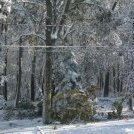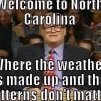All Activity
- Past hour
-
Rain finally ended here. Rained all day . A colossal bust on models and forecasts that were essentially dry . Of course this cant happen in winter with snow . .37 on the day
-
Some juicy stuff in afternoon round 1, but it missed me by a couple miles. We'll see if round 2 gives me anything. But after this morning I'm fine if I don't
-
Some peeks of blue sky in Gaithersburg.
-
And it's already happening with small hail and lightning at Fort Collins and Loveland.
-
It lightens up for a bit and then back to a moderate rain.
-
tomorrow trended doa quickly for around here, with a quick trend towards poor timing of the mcv passage. shame. we've reached the point where things ramped up for a month of quality activity from mid-june through mid-july last year, after a similarly slow start like this year. it doesn't look like a turn-around is in the cards just yet.
-
Next week looks brutal
-
Pretty much the same here.
-
This rain is RELENTLESS. Been a moderate rain much of the day with some periods of light rain.
-
Yes, I put it on the north side to keep it as far away from sunlight as possible, but it still recorded 93.7 last Thursday so I used the average of all four sensors (90.0 to 93.7) and came up with a high of 92 for that day.
-
Yes, and I've noticed it's a cascading effect because besides CO2 we also have more methane and more water vapor (all three are greenhouse gasses), we are becoming cloudier by the year which is increasing the impact, just like it did with Venus (even though its clouds have a different composition, mostly sulfuric acid.)
-
Didn't you say the other day that you have one near your roof?
-
Can't.... Earth would have to lose it's magnetic dynamo. Venus suffered H2O extinction from slow rotation and having too little dynamo, while being technically too far inside the Goldy zone ... That meant eons of pulverizing radiation cracking water molecules apart - there's also likelihood that Earth began with or received water sources in addition to having the powerful dynamo that protect it. But... if by saying "like Venus", we just mean hot as hell? that can happen with different chemistry and insolation, too.
-
Speaking of volcanos... this looks promising:
-
we need to look at some of these other sensors to see if they have any exposure to the sun and are properly sited too.
-
Humans have now reached the point where it's a runaway greenhouse effect. I remember there was an article posted that we are on the pathway to a similar fate as what happened to Venus.
-
well... yeah. but then Earth, nor the nature within which it exist are ideal then, either. 1800s had a couple a big volcanoes. then we got solar cycles and storms there. comet impacts... CRB's from deep astronomy for shit's sake. I mean how far outside of it do we wanna go, we can certainly find reasons to just suggest it's all futile anyway. Or, we can keep the conversation constrained to Human asshole forcing not adding to this compendium of plausible disaster scenarios. That's the point.
-
Pass. I’d rather not have anything to ever do with that .
-
Nice, I think we started exceeding that in the 1990s. I remember at the time that 1990 and 1991 were the two hottest years on record (both locally with 23 of 24 months above normal at NYC and globally with the hottest years on record up to that point.) If I remember what I read back then correctly, we jumped to a global mean temperature in the 57 degree range.
-
I added a little context after your quote:
-
Don't worry, I can show you a recording.
-
Yes, we've passed the point of benefits, which I believe ended in the 1990s. But the ice ages and the cold we had in the 1800s wasn't the ideal climate for humans either.
-
-
also, for farming purposes maybe a halfway point was better. Definitely not the ice ages and definitely not what we have now. I'd estimate that our ideal climate for productivity and food growth was somewhere between the 1950s and the 1990s, we went downhill rapidly after that.
-
I think it probably depends on whether you are looking pre- or post-invention of air conditioning. Prior to the invention of air conditioning, I suspect something near pre-industrial is the optimum. Perhaps somewhat colder. Last glacial maximum is probably too cold due to the expansive continental ice shelves, although it would open up a lot of new coastlines. Ben Franklin considered 47-50F annual mean temperature to be the ideal for agriculture and industry. I think patterns of development [prior to air conditioning] support that, with large cities like Chicago, Detroit, New York, Boston, Pittsburgh, Cleveland, Buffalo, etc. falling in that isothermal band. The south was mostly underdeveloped rural/agrarian lifestyle. Maybe some winter homes in Florida. So, prior to the invention of air conditioning, you would probably want to find the climate regime that maximized the areal extent of mean temperatures from the mid 40s to low 50s. Of course, now, most of these places are above 50F in the running means. But he did say 50-53F was the second best temperature band.






.thumb.png.4150b06c63a21f61052e47a612bf1818.png)






